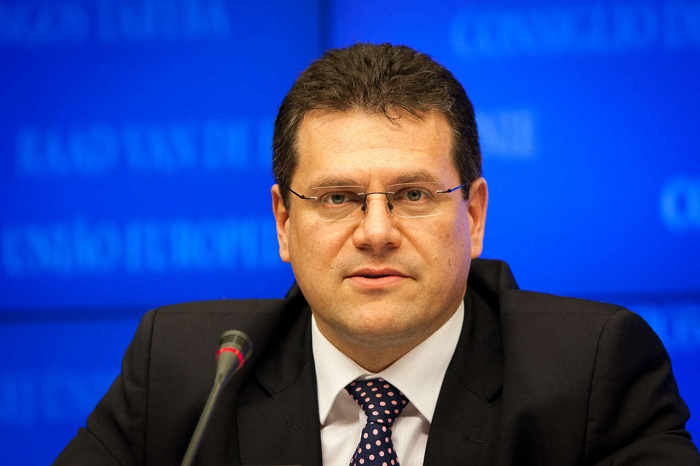“But it [Energy Union] cannot and should not be built in Brussels. It must be a joint inclusive European project,” added Sefcovic.
He pointed out that the transition towards a more sustainable energy system is at the heart of the Energy Union, based on the 2030 targets for greenhouse gas reductions, renewable energy and energy efficiency.
“These go hand in hand with improving our security of supply, the competitiveness of the energy system and, equally important: that the transition is fair and inclusive,” said Sefcovic.
He believes that the energy transition requires ensuring professional skills are adapted to the new market, that infrastructure is adequate for the new market, and perhaps most importantly: eradication of energy poverty.
“We consider energy efficiency to be one of the main means to reduce the energy bills and we support it through both legislation and funding of efficiency projects,” added Sefcovic.
“When it comes to our energy security, in February, we presented a legislative package which will make a real difference for energy consumers, notably those in the most vulnerable member states,” he said, adding that halt of gas supply a kind of threat that a modern market cannot and should not function under.
The Conference of Parliamentary Committees for Union Affairs brings together the EU affairs committees of national parliaments, as well as members of the European Parliament.
More about:
















































